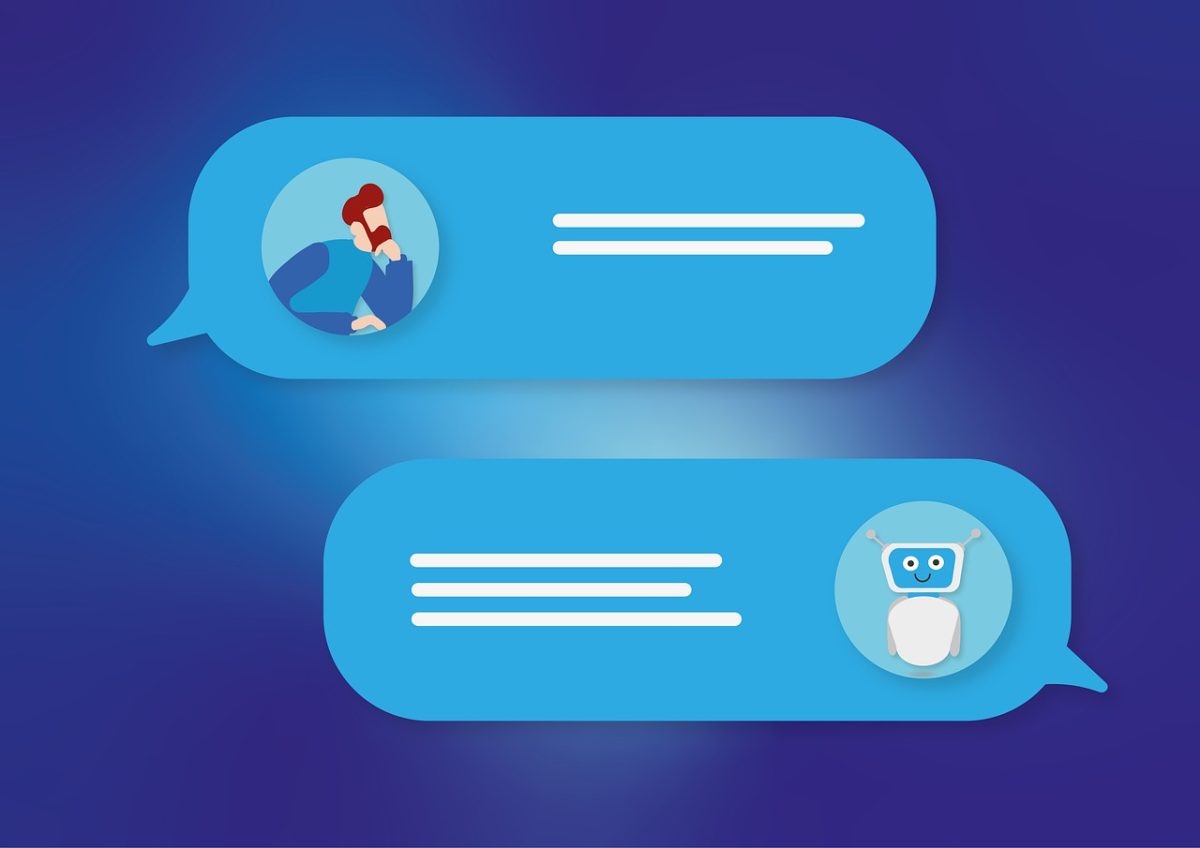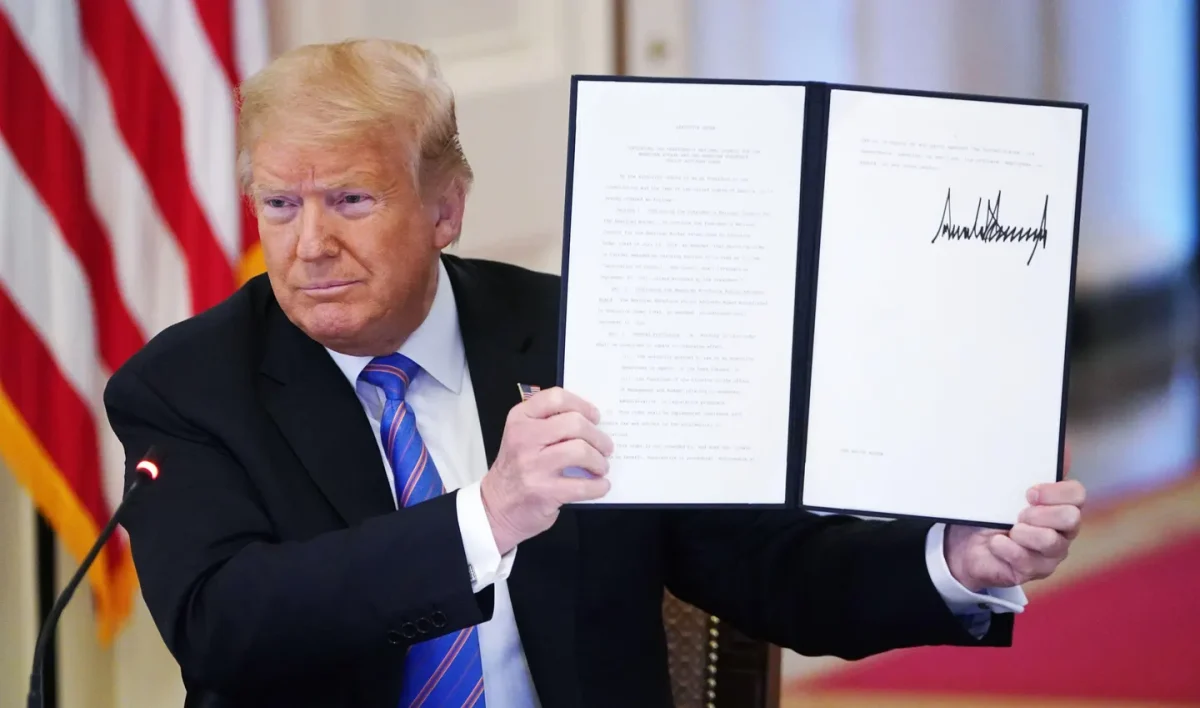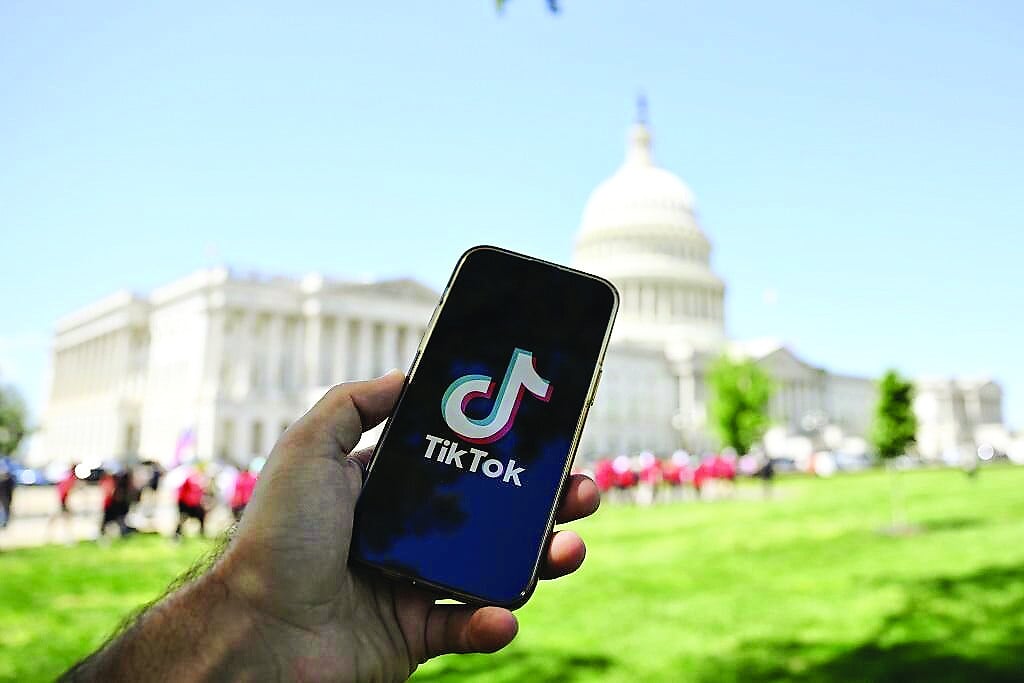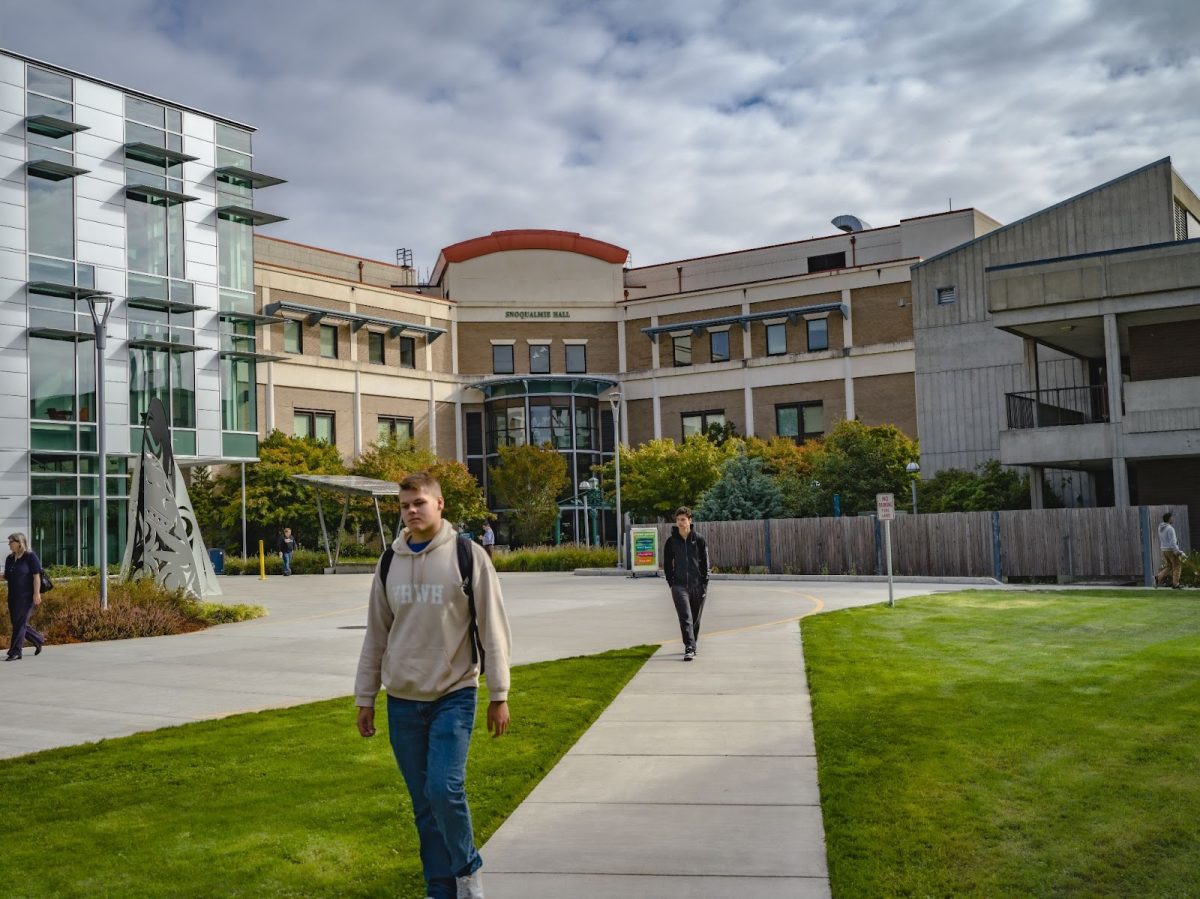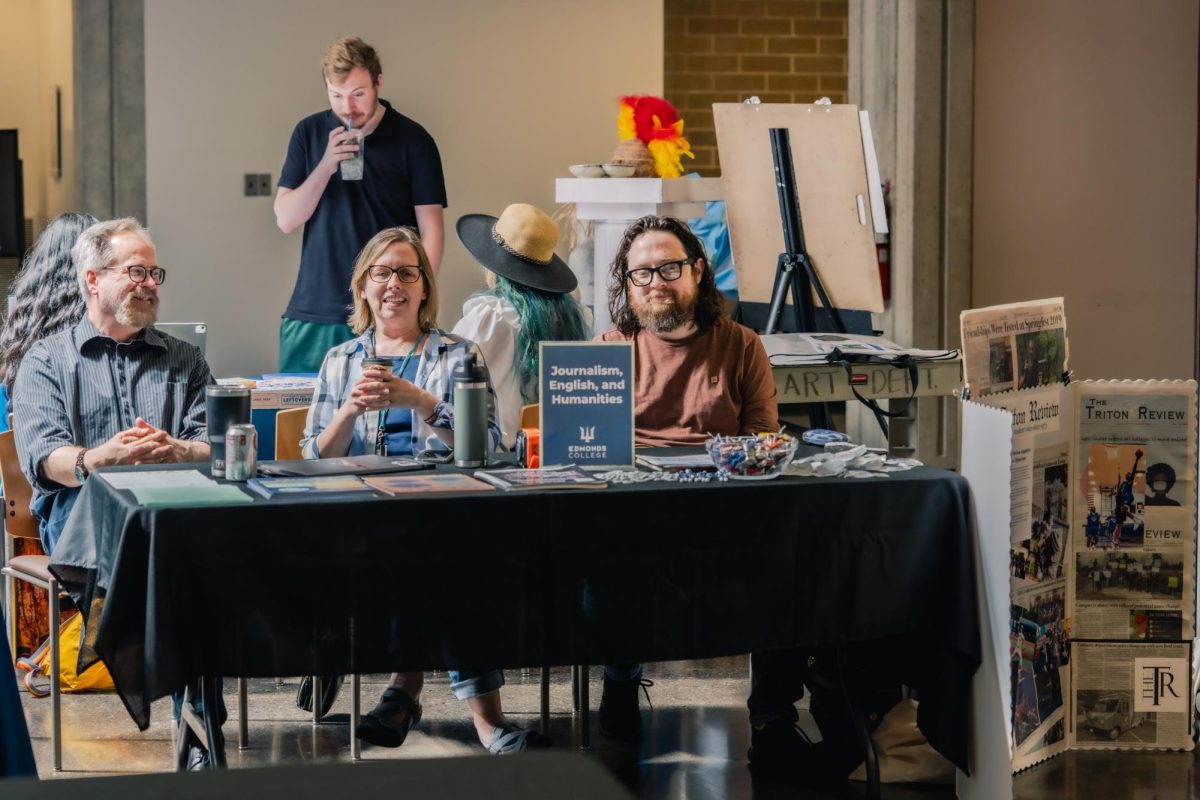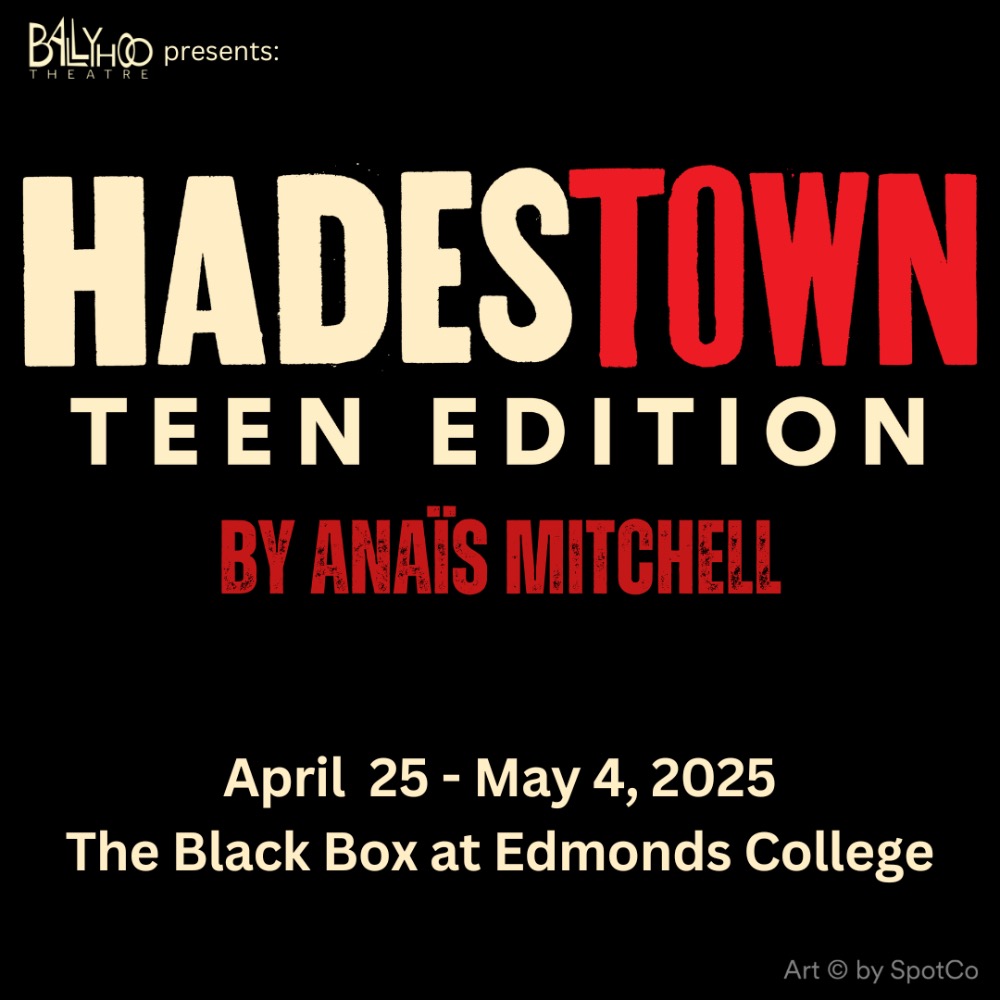“Chatbots give feedback
But students must think and learn
Chatbots are not teachers,”
The above haiku is the response that ChatGPT generated for Edmonds College English professor Jerrod Bohn when he asked an AI chatbot to “write me a haiku in the style of Jerrod Bohn.”
The lighthearted exercise highlights serious issues that educators are in the midst of grappling with, according to Bohn, as they try to figure out how to integrate such tools into teaching that supports rather than detracts from student learning.
Released last year by Open AI, ChatGPT allows users to input a prompt, like the formerly stated one, and get in return a body of text created by artificial intelligence (A.I.). Since ChatGPT takes any published writings found on the web to generate a response, it leaves many published authors, including Bohn, concerned.
“In theory, I could go to a chat program and prompt: ‘write a poem in the style of Jerrod Bohn,” Bohn explained.
In one simple click users of this program are able to bypass all the hard work of formulating their own thoughts and opinions, and instead simply have A.I. create an answer, based off of the hard works published by authors, for the sake of a student’s English assignment.
From copying others’ work, to utilizing multi-billion dollar companies, like Chegg, teachers have always had to address cheating in the classroom. In the past teachers have been able to focus on these more straightforward methods of cheating and plagiarism, but now, with the emergence of the novel A.I. Chatbots, teachers are scrambling to find ways to both handle and classify the use of this intuitive technology.
Last December, just after ChatGPT was released, Bohn used the program for the first time.

“I was just feeding the program generic prompts to see what it would come up with… It was more humorous than serious,” Bohn noted.
Although he found the experience interesting, he was able to identify the tone of the writing easily.
“Ultimately, the voice of the program sounds robotic,” he explained. “It sounds very detached and not personal.”
At the same time Bohn was approaching this technology from an analytical, professorly perspective, students quickly began adopting the new technology into their workflow and began passing it off as their own.
“Last quarter I received a paper that I am sure was partly written by an A.I.,” he stated. “Part of it sounded like it was something a Running Start student would write. Then, another part of it sounded like something a very experienced writer would write.” Based upon the uncharacteristically advanced vocabulary and sterile tone, he was able to identify the paper as partially A.I. generated.
Bohn is not the only English teacher at Edmonds College trying to differentiate between student and A.I. writing in their classroom. As a department, they are currently discussing how to properly handle cases of A.I. plagiarism in classes.
“The college right now has not adopted an official policy on this [A.I.]. But, it’s probably something that’s going to be coming for the fall,” Bohn revealed.
Writing policy for A.I. has proven to be a complex challenge for the English department. Just as the printing press allowed for easier distribution of books, and the calculator revolutionized math computation, A.I. Chatbots have the ability to aid students’ writings in ways not previously possible. Professors, like Bohn, have started to realize just how invaluable of a tool A.I. can be. Although students can create a poor quality and obviously A.I. generated paper in an instant, students can also use it as a stepping stone when researching topics.
Making inadequate papers may appear trivial, but Bohn notes that in order to create an A-quality paper, it took his colleague about 20 tries to refine the prompt. Even then, they had to know the topic extensively to be able to expertly refine the text being fed out. In order to effectively create a paper, a student must fully understand the nuance and perspective of the topic, a characteristic which A.I. chatbots lack.
Ultimately, Bohn concluded that he takes a neutral stance on the use of A.I. Chat programs since; on one hand these programs are a unique tool that could be helpful, while on the other hand they pose possible educational harm. Many other professors at the college have also come to this same conclusion. Since they recognize that their students will utilize this tool regardless of policy, they have begun proactively educating their class on how to effectively utilize it as a tool.
“A student might be going into a career where you know they would be using this program on the job,” Bohn revealed. “That’s another reason to figure out how we can integrate this technology into the classroom.”
Students aren’t the only ones to benefit from A.I. technology, some teachers have also begun to think about ways in which A.I. technology can assist them in their classroom.
“We provide fairly extensive feedback on papers, but sometimes I wonder about the clarity of the ideas in the feedback I am giving,” Bohn reflected. “Maybe I can put my comments through [A.I.] and almost check them, for grammar and things like that, too. I think that can be very powerful.”
Many industries have begun to realize the threat that AI poses to their business model. For instance, Chegg lost nearly 50% of their stock value, following an earnings call, which revealed a massive loss in customers to ChatGPT. Recently, multiple guilds in Hollywood, including the Writers Guild of America (WGA), have gone on strike to address dire issues facing the profession, including the threat that A.I. Chatbots pose to their profession.
“We ban A.I…. but most importantly, we put in place the protections that ensure that this will be a livable career for a long time in the future,” Adam Conover, a prominent comedian and known for his show “Adam Ruins Everything,” told the Associated Press in a Youtube interview discussing the WGA strike.
As the world becomes more adept with this technology, the only thing known for certain is that “they are probably not going anywhere,” Bohn concluded.
The Triton Review asked ChatGPT to summarize the above article. Here is what we got in poem form:
“Chatbots provide feedback, not teachers’ role,
Students adopt them, plagiarism takes its toll.
Educators grapple, policy to devise,
A.I.’s impact spreads, posing threats and surprise.
Adaptation is certain, their presence we embrace.”

